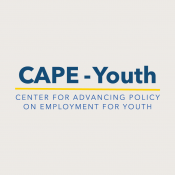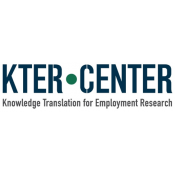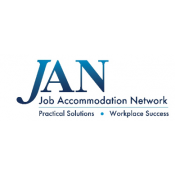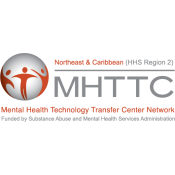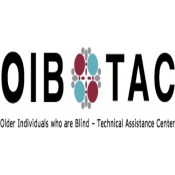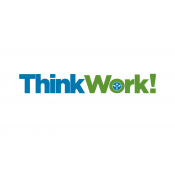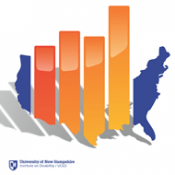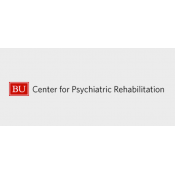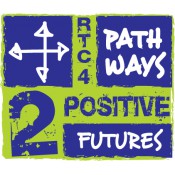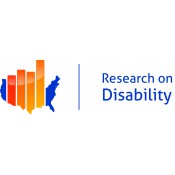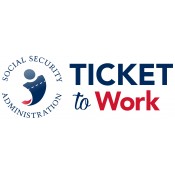Knowledge Translation (KT) Consortium
The Knowledge Translation (KT) Consortium brings together federally funded Training and Technical Assistance Centers, each with their own unique mission addressing different aspects of employment, career readiness and development for youth and adults with disabilities. Knowledge Translation (KT) Consortium members come together to 1) meet and interact, 2) share information on each Center’s focus, funding and use of KT tools, and 3) develop a framework for sharing resources and training opportunities to collectively improve employment and economic advancement outcomes for individuals with disabilities.
If you are a Federally funded Training and Technical Assistance Center focused on Employment for people with disabilities and would like to join the Knowledge Translation Consortium, please contact us at: info@leadcenter.org.(link sends e-mail)
Center for Advancing Policy on Employment for Youth (CAPE – Youth)(link is external)
Operated by Council of State Governments
The Center for Advancing Policy on Employment for Youth (CAPE-Youth) was created by the United States Department of Labor in 2019. The Center seeks to improve employment outcomes for youth and young adults with disabilities by helping states build capacity in their youth service delivery and workforce systems. The center conducts research, develops strategic partnerships and systems coordination, shares best practices, and helps states identify opportunities to expand career pathways, work-based learning, and professional development for youth and young adults with disabilities.
Center on Knowledge Transition for Employment Research (CeKTER)(link is external)
Operated by the American Institutes for Research
CeKTER aims to promote the use of employment research findings & research-based products by people with disabilities, employers, employment service providers, vocational rehabilitation professionals, and policymakers among others. CeKTER’s overall goal is to assist NIDILRR disability employment grantees with sharing their work that will improve services, approaches, practices, and policies that support improved outcomes for people with disabilities.
Direct Care Workforce Capacity-Building Center(link is external)
Operated by National Council on Aging
The Direct Care Workforce Capacity-Building Center will provide technical assistance to states and service providers, and facilitate collaboration with stakeholders to improve recruitment, retention, training, and professional development of direct care workers.
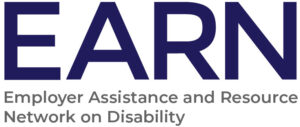
Employer Assistance and Resource Network on Disability (EARN)(link is external)
Operated by the K. Lisa Yang and Hock E. Tan Institute on Employment and Disability
The Employer Assistance and Resource Network on Disability (EARN) offers information and resources to help employers recruit, hire, retain and advance people with disabilities.
Job Accommodation Network (JAN)(link is external)
Operated by West Virginia University
The Job Accommodation Network (JAN) is the leading source of free, expert, and confidential technical assistance on workplace accommodations, the Americans with Disabilities Act (ADA) and related legislation, and self-employment options for people with disabilities. JAN helps people with disabilities enhance their employability, and shows employers how to capitalize on the value and talent that people with disabilities add to the workplace. JAN is funded by a contract from the U.S. Department of Labor, Office of Disability Employment Policy (#1605DC-17-C-0038).
![]()
National Center on Leadership for the Employment and Economic Advancement of People with Disabilities (LEAD Center)
Operated by National Disability Institute (NDI)
The LEAD Center focuses on advancing employment outcomes and economic advancement opportunities for people with disabilities. The LEAD Center provides resources, technical assistance, programs and partnerships that can create an increasingly effective workforce system.
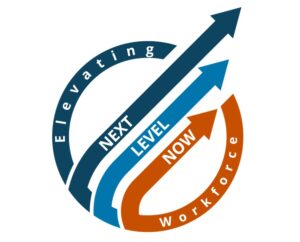 Next Level Now (NLN)
Next Level Now (NLN)
(link is external)
Operated by Safal Partners
The Collaborative will assess the Technical Assistance (TA) needs and prioritize services to provide TA in a tier-level structure ranging from Universal TA to Customized TA. This work includes developing TA materials that can be used quickly by Workforce Development Boards (WDBs) and One Stop Operations staff to resolve issues around relevant topics of importance.
Northeast & Caribbean Mental Health Technology Transfer Center (MHTTC)(link is external)
Operated by Rutgers, the State University of New Jersey
The Northeast and Caribbean MHTTC serves New York, New Jersey, Puerto Rico, and the US Virgin Islands, providing training, technical assistance, and resource dissemination to support and enhance the mental health workforce. The Northeast and Caribbean MHTTC is located at Rutgers, The State University of New Jersey, School of Health Professions, Department of Psychiatric Rehabilitation and Counseling Professions. Funded by the Substance Abuse and Mental Health Services Administration (SAMHSA), the MHTTC works with organizations and practitioners who provide mental health services to strengthen their capacity to deliver effective, evidence-based interventions.
Older Individuals who are Blind Training and Technical Assistance Center (OIBTTAC)(link is external)
Operated by the National Research and Training Center on Blindness and Low Vision (NRTC) at Mississippi State University
The National Research & Training Center on Blindness and Low Vision (NRTC) implements training and technical assistance projects focused on agencies serving older individuals who are blind (OIB). This project is funded by the Rehabilitation Services Administration (RSA), which focuses on enhancing employment and independent living outcomes for individuals who are blind or visually impaired through research, training, education and dissemination.
 Peer Experience National Technical Assistance Center (PENTAC)(link is external)
Peer Experience National Technical Assistance Center (PENTAC)(link is external)
Operated by Peer Support Coalition of Florida, Inc.
PENTAC is a Substance Abuse and Mental Health Services Administration (SAMHSA) funded Consumer Supporter TA Center that promotes evidence-based care for adults with serious mental illnesses (peers). PENTAC translates its dedication to developing peers and increasing leadership capacity within the peer workforce by implementing two signature workforce development programs. The Entrepreneur Speaker Series and companion Aspiring Entrepreneur Workshops support individuals seeking financial and occupational wellness through entrepreneurship. The Employer Learning Series on Workplace Well-Being supports small to mid-sized organizations with exploring, embedding, and expanding well-being initiatives. We also provide universal to customized TA in our focus areas upon request.
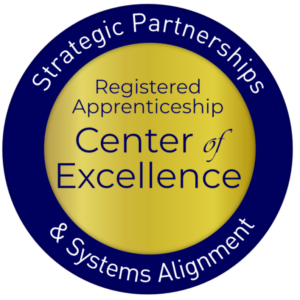
Registered Apprenticeship Technical Assistance Center of Excellence(link is external)
Operated by Safal Partners
Registered apprenticeship is the proven gold standard in workforce development. Better aligning industry, workforce and education around apprenticeship can help build a stronger, more resilient, and future-ready American workforce. The Registered Apprenticeship Technical Assistance Center of Excellence is focused on helping key stakeholders across these three systems build and scale strategic partnerships to put more American workers on high-quality apprenticeship career pathways.
Rehabilitation Research and Training Center on Advancing Employment for Individuals with Intellectual and Developmental Disabilities(link is external)
Operated by the University of Massachusetts – Boston
The main goal of the Rehabilitation Research & Training Center on Advancing Employment for Individuals with Intellectual and Developmental Disability is to identify strategic approaches to different liaisons to understand the importance of Employment First. This training center conducts research, training, and outreach activities that promote employment for individuals with intellectual and developmental disabilities There are four activities that RRTC supports:(1) Choosing Work: Effective Knowledge Translation and Support for Individuals and Families; (2) Increasing the Effectiveness of Employment Consultants; (3) Building Capacity and Supporting Organizational Transformation for Community Rehabilitation Providers (CRPs); and (4) Policies and Practices of High-Performing State Employment Systems.
Rehabilitation Research and Training Center on Employment Policy and Measurement(link is external)
Operated by the University of New Hampshire
The Rehabilitation Research and Training Center on Employment Policy and Measurement (EPM-RRTC) provides support to the disability and policy communities to tackle important policy issues. The center provides insightful knowledge about disability employment policy and an understanding of the labor market experiences of people with disabilities. The center partners with the Association of University Centers of Disabilities, Mathematica Policy Research, and the Kessler Foundation on a scope of work that includes 11 research projects and 12 knowledge translation projects with a wide variety of technical assistance, dissemination of resources, and training.
Rehabilitation Research and Training Center on Improving Employment Outcomes for Individuals with Psychiatric Disabilities(link is external)
Operated by the Trustees of Boston University
The Center for Psychiatric Rehabilitation, with its network of collaborators, will conduct a Rehabilitation Research and Training Center (RRTC) on Improving Employment Outcomes for People with Psychiatric Disabilities.
The goal is to conduct a coordinated program of research and knowledge translation projects and activities that build on the existing evidence-based supported employment and improve employment outcomes for individuals with psychiatric disabilities.
Research and Training Center (RTC) for Pathways to Positive Futures(link is external)
Operated by Portland State University
The RTC for Pathways to Positive Futures aims to improve the lives of youth and young adults with serious mental health conditions through rigorous research and effective training and dissemination. Their work is guided by the perspectives of young people and their families, and based in a positive development framework.
Research on Disability(link is external)
Operated University of New Hampshire
Research on Disability is a collective of various Centers focused on Disability statistics, demographics and policy measurement.
- Rehabilitation and Research Training Center on Disability Statistics and Demographics (StatsRRTC)(link is external) – StatsRRTC aims to improve knowledge about and access to existing data and generates the knowledge needed to improve future disability data collection and dissemination. The StatsRRTC aims to foster evidence-based decision making by people with disabilities and their families, advocates, policymakers, program administrators, service providers and researchers.
 Small Business Hub(link is external)
Small Business Hub(link is external)
Operated by National Disability Institute (NDI)
The Small Business Hub is a collaboration with over 40 organizations working together to help entrepreneurs and business owners with disabilities. The Small Business Hub is a Community Navigator Pilot Program powered by the U.S. Small Business Administration.
Ticket To Work Program Manager (TPM)(link is external)
Operated by Cognosante
Social Security’s Ticket to Work (Ticket) Program supports career development for people ages 18 through 64 who receive Social Security Disability Insurance (SSDI) and/or Supplemental Security Income (SSI) benefits because of his or her disability. The goal of this free and voluntary program is to help people with disabilities move toward financial independence through work. The Ticket Program connects beneficiaries with free employment services to help them decide if working is right for them, prepare for work, search for a job or maintain success while working. Participants can receive services such as career counseling, vocational rehabilitation, and job search assistance and training from authorized Ticket Program service providers, such as Employment Networks (EN) or State Vocational Rehabilitation (VR) agencies.
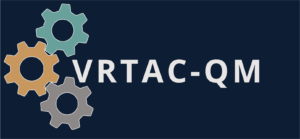 Vocational Rehabilitation Technical Assistance Center for Quality Management (VRTAC-QM)(link is external)
Vocational Rehabilitation Technical Assistance Center for Quality Management (VRTAC-QM)(link is external)
Operated by Interwork Institute at San Diego State University
The purpose of the VRTAC-QM is to provide training and technical assistance that will enable State VR agency personnel to manage available resources, improve effective service delivery, and increase the number and quality of employment outcomes for individuals with disabilities.

